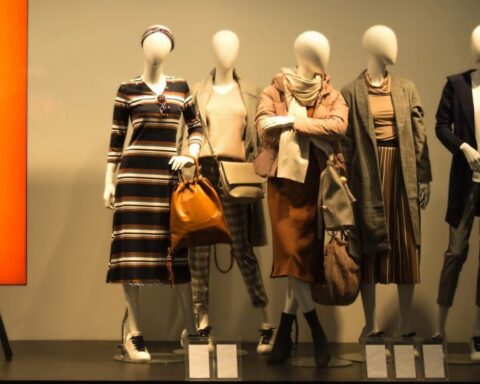A natural extension of the monetary economy: human scenes from the world’s major cities… Georg Simmel tried to describe the metropolitan individual in the early 1900s, and his insights remain entirely valid today. In fact, as many—including myself—have attempted to explain, there’s nothing missing in his account; if anything, there is even more. The powerful connection between our culture of consumption, the relentless drive for wealth, and the image-saturated society we live in has now pushed our “technomediatic” world to the brink of collapse… Still, let us begin by revisiting Master Simmel’s observations from a century ago. He says:
The modern metropolitan person is irritable. Overwhelmed by the bombardment of stimuli in city life, they try to distance themselves from their social and physical environment, gradually assuming a neurasthenic personality. In small towns, people tend to know almost everyone and maintain positive relationships. Such a dynamic is impossible in a city, where one encounters hundreds of individuals each day. Attempting such intimacy in an urban setting would shatter one’s inner world. Faced with the fleeting and superficial encounters of metropolitan life, people understandably grow distrustful and are forced to place distance between themselves and others. In large cities, we often have no idea who our neighbors—whom we may have lived beside for years—really are. This is why people from small towns tend to see the urban individual as cold and soulless.
According to Simmel, “The culture of money means that life becomes enslaved to its own means.” To live in a constant state of overstimulation, to be endlessly flattened and leveled by the mechanisms of the monetary economy, eventually drives the city dweller into apathy, cynicism, and weariness. They grow tired of everything:
“The nerves, having been forced to respond with full intensity for so long, eventually become incapable of reacting to anything… In their eyes, everything appears equally dull and gray. Nothing seems worth getting excited about.”
This state of mind can only occasionally be disturbed by intense excitement or overpowering desires. And while the satisfaction of such desires may bring temporary relief, before long, the same emptiness returns.
If only it ended with distance and fatigue… In the jungle of city life, in the face of endless crowds, people attempt to shield themselves by devaluing the world and other people—even ignoring relatives and neighbors. They become someone whose eyes still see, but whose ears no longer hear. As this detachment sets in, “regardless of the cause, a slight irritation in close contact can, at any moment, turn into hatred or conflict; a mutual sense of alienation and disgust” begins to emerge. Yet whatever one does, in the end, they begin to resemble the others; in the metropolis, everyone becomes like everyone else, and life is reduced to uniformity.
The only way to resist this uniformity is to retreat inward, to begin believing only in oneself—and, at the same time, to try to display one’s difference through dress and attitude in the most striking, exaggerated manner possible. So what if one becomes strange, affected, or overly sharp? At least they’ve succeeded in drawing attention through their difference… As bodies draw closer in crowded spaces and urban environments grow more cramped, souls in the metropolis—each trapped in its own labyrinth—pull further apart in search of air, becoming increasingly isolated.
Despite all this, if people still remain together within a system—if they haven’t simply scattered, saying “there’s nothing here that holds us together”—it is all thanks to money. Money is the spider at the center of the tightly woven web of urban society…
So, can the city person described by Simmel a century ago—now suffering even more intensely in today’s technomediatic world, and living wholly within the monetary economy—ever find happiness?
Money and Happiness
According to Simmel, the monetary economy also has its positive aspects. First and foremost, money is the clearest proof that humans are beings capable of creating tools to achieve their aims. A tool symbolizes human ingenuity; it embodies the grandeur of the human will as well as its limitations. Thanks to money, we are able to establish relationships with a wide range of people. We can limit our obligations to one another through specific services and products, and experience forms of satisfaction that do not exist in other economic systems.
Other advantages of the monetary economy, according to Simmel, include: the protection and maintenance of personal interests within a free environment where individuality can be realized; the separation of the worker from the means of production; and liberation from the pressures of absolutism and the constraints of the social groups in which one lives.
These are the benefits listed by our thinker Georg Simmel. But still, he does not give the monetary economy a passing grade—because of the cultural tragedy it brings about. In a monetary economy, you cannot live without money—but you also cannot find happiness with it.
According to certain liberals—may God bless them—and especially my dear teacher Atilla Yayla, almost all the good things that happen to us are thanks to money… Let us now read a shortened version of our professor’s article, originally titled İnsanların Hayattaki Beklentileri (“What People Expect from Life”):
“It is said that people are filled with the desire to become rich and to easily buy whatever they want. A person who can purchase what they like and spend money without worry is considered a happy person…
A study conducted in the United States revealed that what makes people happy is not money itself, but their status in society. The research showed that those who are liked and respected are happier than those with high incomes.
It also showed that the happiness provided by wealth and money tends to diminish over time, whereas appreciation and social esteem tend to be lasting.
I’ve also read earlier studies which found that there are multiple patterns in the relationship between money and happiness.
For example, people who start out at zero—or at very low income levels—and then climb the income ladder through work and entrepreneurship experience great happiness.
However, the same sense of happiness does not appear in those who come into unearned wealth through inheritance or large donations—especially among young people. In fact, more often than not, the opposite happens…
These same points had already been emphasized long ago by both prophets and philosophers. In the works of David Hume and Adam Smith, for instance, it is stated that people have a desire for approval, and that this desire plays a powerful role in motivating and directing human behavior.
That said, one does not have to be a prophet or a philosopher to see the truth… In my view, money, the desire to earn it, and the effort to become wealthy and prosperous are highly beneficial—both for the individual and for society. History bears witness to this…
However… money is not an end in itself. In the end, it becomes a means for earning respect and acceptance—just like success in sports, science, or the arts.
What is certain, however, is this: the contribution of money—and the pursuit of money—to humanity is far greater—indeed, incomparably greater—than the contribution of sports, science, or art.”
Much could be said about Professor Yayla’s observations. On this occasion, let us refer our readers once more to a previous article in which we discussed Adam Smith:
https://kritikbakis.com/sermaye-devlet-ve-adam-smith/
Money is undoubtedly one of the most brilliant products of human ingenuity… In today’s modern state structure and in the workings of the international system, one may criticize money and its economy—but it is impossible to reject them entirely. Unless you are a dyed-in-the-wool anarchist, these are indisputable facts.
Following Simmel’s conceptual framework, we too are proceeding under the headings of “the monetary economy” and “the philosophy and psychology of money.” What we especially wish to emphasize here is that any discussion or assessment of the relationship between capitalism, liberalism, and modernity must also include the topic of “paper money.” All of these are deeply interconnected; one cannot exist without the others.
So then, while spinning in the heart of this paradox, what must we do?
Simmel believed that the tragedy of urban life governed by the monetary economy—the alienation it breeds—could only be overcome through art. As an intellectual living through the early turmoil of modernity, he sought salvation in art. He thought, much like Nietzsche, who once said, “Art and only art—if anything—can save us from dying at the hands of reality.” For Simmel, too, only art offers more than life itself. It is in art alone that life and form can truly come together.
He says: “There has never been an era in which individuals lacked the desire for money. However, it can be said that the times when this desire was at its most intense and dominant were also the times when personal fulfillment was at its most modest—such as periods when religious feeling lost its power to elevate the ultimate purpose of existence.”
Let us pause here and step back from Simmel for a moment—back to the time of Kierkegaard.
As someone who caught the train of modernity at the very last moment—one of the first to recognize and reflect on it—Søren Kierkegaard realized that modernity was not just about mass-produced goods but also mass-produced people, increasingly identical to one another. He called this crowd of serial production “the public.” From his earliest writings, he responded with existentialism to the media, the political and cultural tendencies, and the rationalism in philosophy that had given birth to this community of living clichés.
Faced with the deadly illness called despair, he called people to the true faith. But his call was unheard by those who came after him—like Nietzsche and Simmel—who sought solace in art instead. In my view, Kierkegaard’s call to summon spirituality to confront the hardships of modernity was crucial. It is still a voice we need to heed. For otherwise, we will never be able to establish any meaningful connection between the ancient pursuit of happiness and our modern condition.
When I speak of the “ancient pursuit of happiness,” I mean a concept of happiness that remained firmly tied to virtue—where morality and a philosophy of life advanced hand in hand. In the traditional world, the purpose of human existence was not to be happy, but to become a person worthy of happiness. Happiness was always discussed alongside virtue.
Muslim philosophers, in particular, used the term es-saade to speak of happiness. And whenever they began to discuss the topic, their first step was to distinguish their understanding of happiness from what the general public mistakenly assumed it to be. For this reason, they preferred expressions such as es-saadetü’l kusva, uzma, or ulya—all meaning “the highest form of happiness.”
With modernity—capitalism and the monetary economy—the world was stripped of philosophy. The things that people merely thought were happiness took center stage, and this shift went unquestioned. For it became inevitable to act according to the fleeting pleasures of the masses in order to drive further consumption.
So yes—where we stand now, what truly matters—and what we must reflect on even more—is where to place money within a moral philosophy of life grounded in spirituality, and what kind of stance we are to take within the monetary economy.
People struggle through life; they seek success. Earning money, creating opportunities for others to work and make a living—these are certainly forms of success. But no matter what, we must not surrender ourselves to the monetary economy. We must continue to elevate our spiritual awareness as the ultimate purpose of our existence.
Our teacher Professor Yayla says, “Money is not an end in itself.” Yet when we place money before virtue, it inevitably becomes one. After all, isn’t the most visible social and psychological function of money to reduce all other goals to the level of mere means? Despite exceptions, doesn’t our lived experience confirm this?
Whether we earn money or not, let us keep striving in life—for the sake of the highest happiness.






